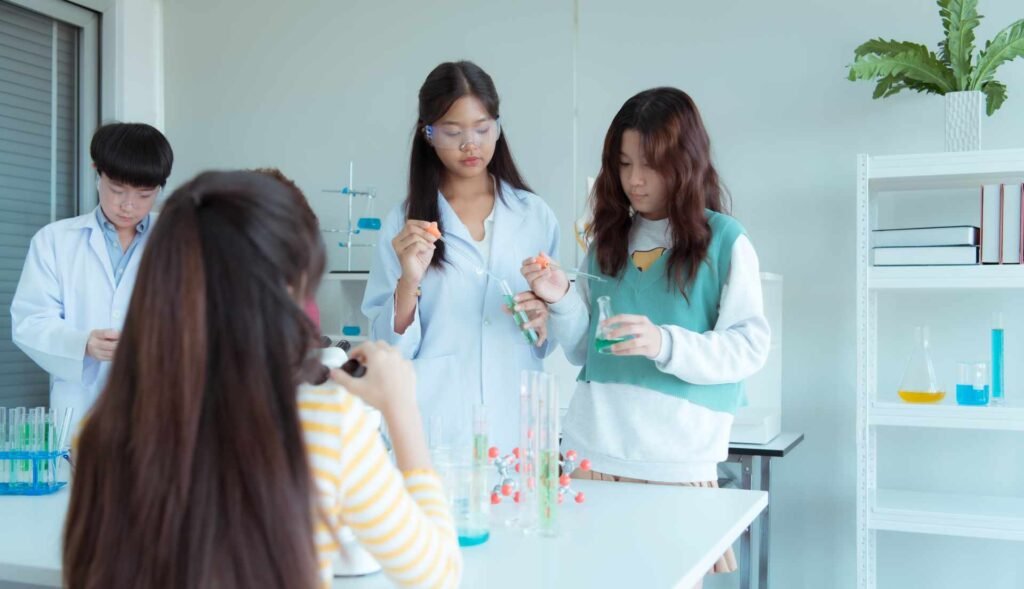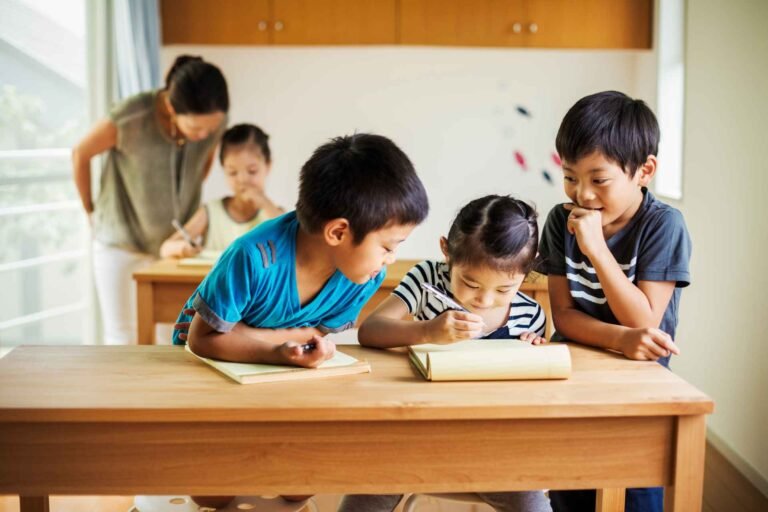Home » The Sycamore Center for Progressive Education Curriculum » Grade 7 Curriculum: Second Sweep Through History
Grade 7 Curriculum: Second Sweep Through History
Explore geography and global cultures from ancient civilizations to the Reformation.
Major Subjects: Bible, History, English, Filipino, Science, Math
Minor Subjects: Music and Art, Health, Physical Education, Home Economics and Livelihood Education, Information and Communication Technology


CORE SUBJECT
Bible 07
The Old Testament
Learning Outcomes:
By the end of the school year, a student must be able to outline the structure and contents of the Bible in the Old Testament.
More specifically, learners are expected to exhibit cognitive, affective, and kinesthetic competencies as manifested in the following outcomes:
- Read through most of the Bible and discover God's heart for the nations.
- Explore how to pray for and serve others.
- Learn to read the Bible on their own.
- Trace the story of God's redeeming love as they examine and overview the entire Bible.
- Study intriguing biblical culture, geography, and archeology to better grasp the big-picture storyline.
Student References / Workbooks
- Richards, L. (2006). International Children’s Bible Field Guide: Answering Kids’ Questions from Genesis to Revelation. Tommy Nelson.
CORE SUBJECT
History and Geography 07
World History: Ancient Times
This course focuses on the various social, cultural, economic, religious, political, and geographical narratives through the timelines in World History, specifically from Ancient Civilizations to the Renaissance and Reformation. These timelines cover the world’s ancient past, the development of civilizations, and how culture and society transform and evolve in the middle ages.
Learning Outcomes:
More specifically, learners are expected to exhibit cognitive, affective, and kinesthetic competencies as manifested in the following outcomes:
- Recall and describe important historical events across different time periods, and explain the relevance of these events to present times.
- Analyze the different empires and societies from the ancient civilizations to the Renaissance through discussions, films, role playing games, gamified activities and other forms of multimedia to understand and relate to the cultures of others.
- Analyze major events, conflicts, and disagreements and able to form their own opinions through fact-finding and inferences.
- Evaluate the developments and discoveries made during the ancient civilization to the Renaissance in order to appreciate their contributions to contemporary society.
- Identify and explain the development of systems of government in order to understand the current systems that govern contemporary society.
- Evaluate the narratives of the ancient civilizations up to the civilizations of the Renaissance to develop awareness and a sense of responsibility for the environmental, social, economic and political aspects of contemporary society, in collaboration with other disciplines.
- Propose solutions to past and current issues or problems that the world is facing based on a broader and deeper understanding of world culture, society, and geography.
- Examine the geographical characteristics of Asia, Africa, Europe, the Americas, and Oceania during this period through to contextualize the discussions on world history and culture.
- Discern the difference between facts and false information by assessing the reliability of historical data, and current news articles.
Student References / Workbooks
- Bauer, S.W. (2007) The story of the world: Ancient times. Peace Hill Press.
- Bauer, S.W. (2007) The story of the world: The middle ages. Peace Hill Press.
LANGUAGE SUBJECT
English Language Arts and Literacy 07
Literature on the Rise of Civilization
Learning Outcomes:
At the end of the school year, a student must be able to develop proficiency in written self-expression especially regarding literature and fiction from ancient history until present popular culture.
More specifically, learners are expected to exhibit cognitive, affective, and kinesthetic competencies as manifested in the following outcomes:
- Recognize literary devices developed throughout history as still evidenced in today's popular fiction.
- Demonstrate appreciation of different civilizations and cultures through group discussions.
- Construct well-organized and effective paragraphs that follow all proper writing conventions for effective communication.
Student References / Workbooks
- Tales from the Odyssey by Mary Pope Osbourne
- King Arthur and His Knights by Maude Radford Warren
- Mara, Daughter of the Nile by Eloise Jarvis McGraw
- The Bronze Bow by Elizabeth George Speare
LANGUAGE SUBJECT
Filipino 07
Panitikan sa Pag-usbong ng Kulturang Pilipino
Learning Outcomes:
- Nakikilala ang iba't ibang bahagi ng pananalita upang makapagsulat ng wasto, epektibo, at makabuluhang pangungusap at komposisyon.
- Naisasakatuparan ang mga aral na ibinahagi at natutunan mula sa mga akdang binasa upang maging mas mabuting mamamayan.
- Nagagamit ang sariling wika sa pagpapahayag ng sariling kaisipan, damdamin, o karanasan sa pagsusulat o pakikipagtalastasan upang maging bihasa sa at mapagyaman ang sariling wika.
- Mapagsama-sama ang mga natutunan sa balarila at pagsulat upang makabuo ng maayos at epektibong pangungusap at komposisyon na nagpapahayag ng sariling pananaw o saloobin.
- Masuri nang mabuti ang nararapat na pag-uugali at pagpapahalaga upang matamo ang pagiging isang makabayan, matapat, at mapanuring mag-aaral.
- Nakalilikha ng makabuluhang interpretasyon sa napakinggan o nabasang kuwento upang mas lumawak ang imahinasyon.
- Mabigyan ng pagkakataon na balikan ang kanilang natutunan sa nagdaang mga aralin upang maiugnay sa kasalukuyang aralin.
Student References / Workbooks
- Princess Maryam ni Carla M. Pacis
- Pangkat Papaya ni Xi Zuq
- Ibong Adarna ni Marietta T. Candelario at Felicidad Q. Cuaño
- Toto O. ni Charmaine La
STEM SUBJECT
Science 07
Physical Science
Learning Outcomes:
- Describe the steps involved in making scientific discoveries to understand the significance of the scientific method by presenting scientific issues.
- Show appreciation for the scientific method through engaging in games and simulations.
- Develop critical thinking by creating scientific perspectives, evaluating and interpreting various types of data.
- Through casual debates and classroom discussions, learn to value diverse scientific opinions, fostering empathy.
- Create experiments using the scientific method to learn its practical uses through scientific investigation and observation.
Student References / Workbooks
- List books that students are required to get copies of, and/or books provided by teacher
- No need to include teacher-only references
STEM SUBJECT
Mathematics 07
Pre-Algebra
This course has five content areas in the curriculum: Number Sense, Measurement, Geometry, Patterns and Algebra, and Statistics and Probability. It specifically covers Sets and Real Number Systems, Conversion of Units of Measurement, Algebraic Expressions and Properties of Real Numbers as applied in Linear Equations and Inequalities in One Variable, Sides and Angles of Polygons, Data collection, and Presentation, and Measures of Central tendency and Variability.
It provides a solid foundation for Mathematics in Grade 8. More importantly, it provides necessary concepts and life skills needed by learners as they proceed to the next stage in their life as learners and as citizens.
Learning Outcomes:
- Formulate real-life problems involving measurements and solve.
- Model situations using oral, written, graphical, and algebraic methods in solving problems involving algebraic expressions, linear equations, and inequalities in one variable.
- Create models of plane figures and formulate and solve accurately authentic problems involving sides and angles of a polygon.
- Collect and organize data systematically and compute accurately measures of central tendency.
- Demonstrate the importance and value of mathematics as a means of communicating and solving problems in daily life.
- Develop positive values such as resilience and perseverance in order to build character by incorporating them in discussions and word problems.
- Create an actual project that will showcase the student's learning experience by expressing it through their inclinations or passions.
Student References / Workbooks
- Pre-Algebra A Teaching Textbook by Greg and Shawn Sabouri

